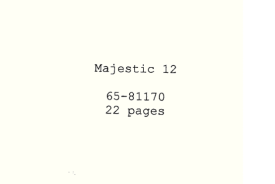Latest University of Central Florida academic research proposed by doctoral student, Joanna Lewis suggests that the quick and heavy processing of information by the "Google Glass" technology can eventually delay the brain's response time. The popular "Google glass" tech is a literal wearable eye glass that provides large information right in front of the eyes.
Due to a set of data readily made available in the "Google Glass" technology, a more or less diabolic outcome may shun the organic function in the brain. And that would be the brain's actual response time.
Although the proponents of the study initially showed appreciation to the latest technology, for who would not be overwhelmed by Google's latest treat- a pair of eye-glasses full of information digitally controlled, particular cons still needed evaluation. The research aims to evaluate the potential danger posed by secondary information, especially to drivers. In a case wherein every second determines life and death, no one has got to take chances.
"The idea here is to explore to what extent displayed secondary information might interfere with the primary task at hand, such as driving", Mark Neider, a UFC associate professor and adviser to Joanna Lewis said in Science Daily.
Fortunately in November 5, Lewis' findings were published in the journal entitled "Cognitive Research: Principles and Implications". With her research secured, Lewis can finally proceed to providing solutions or recommendations on how to best protect drivers or any on-the-second task doers requiring the sharpest of the brain response time from possible distractions of the heads-up "Google Glass" information display.
Nonetheless, this can only be successfully, if Lewis can finally theoretically unlock the secrets of multitasking in the cognitive processing. Respectively, Lewis urged psychology students to participate in the research methods. One of the methods involves letting two types of participants complete a task- the first type wears the glass, and the other does not, UCF reported.
Because of Lewis's academic achievements over the years, she was awarded a dozen of prices. One of which is the National Science Foundation's Graduate Research Fellowships in Cognitive Psychology in 2014. In her recent research, Lewis hopes to be able to continue providing possible solutions that can help enhance the multitasking process of the brain without having to let go of the glasses.
© 2026 University Herald, All rights reserved. Do not reproduce without permission.








